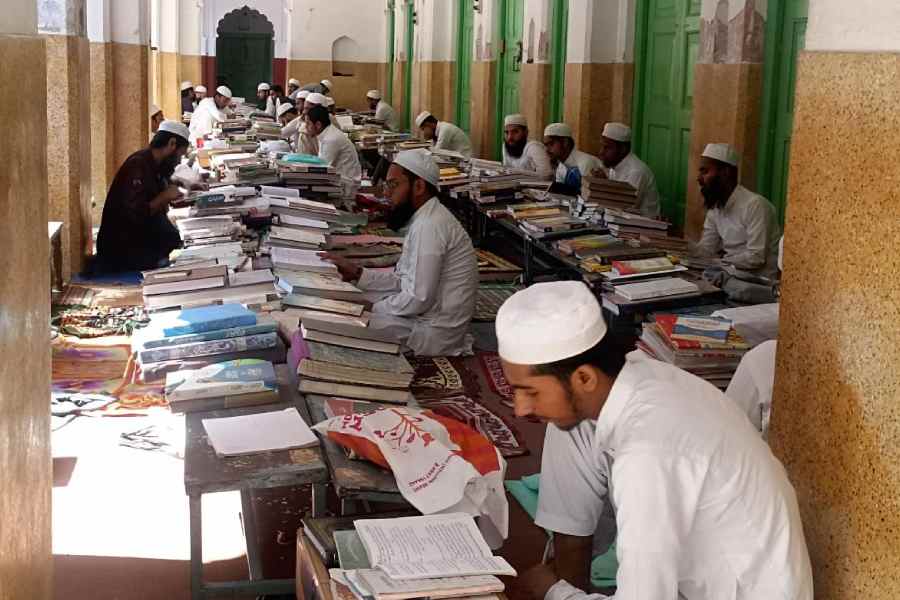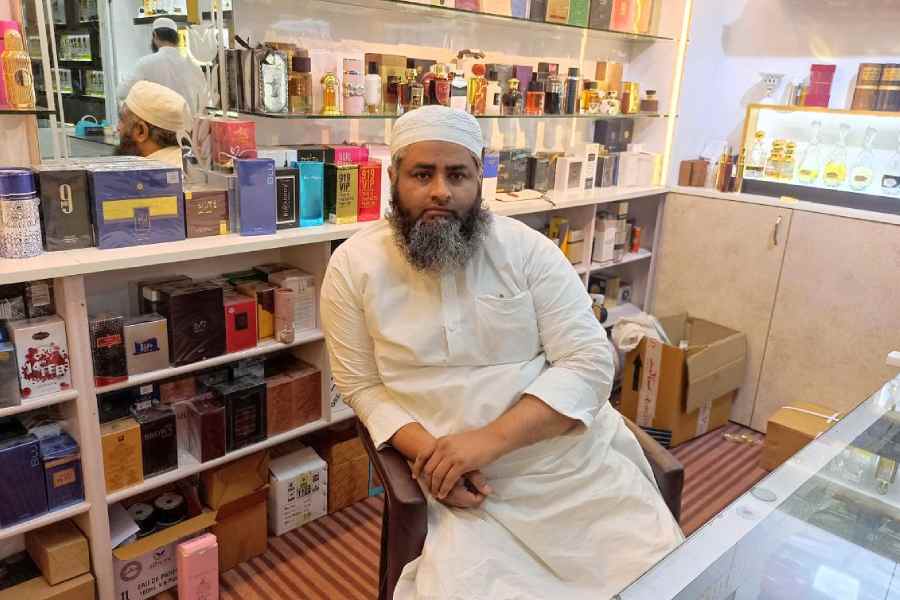Rustam Ali is all of 19 years of age but his words rang loud and clear.
“Zinda rahenge tabhi to naukri ki zaroorat padegi (One needs a job only if he remains alive),” says Ali, a student of Darul Uloom Deoband, the country’s oldest Islamic seminary situated in western Uttar Pradesh, stressing that safety concerns override critical issues of unemployment and price rise for Muslims in “New” India.
“Muslims are very scared and fear for their lives in Modi’s New India as attacks on members of the community have risen ever since the BJP came to power in 2014. The hate crimes against the minorities are on the rise and the whole Muslim community has been demonised,” he says as the call to the evening prayer rings out through the crowded, bustling streets.
A resident of Araria in Bihar, Ali, who wears a skull cap and sports a beard, says his parents spend a sleepless night whenever he boards a train from his hometown
for Saharanpur.
“They keep calling on my mobile phone every hour just to check whether I am safe. They offer shukrana namaz (prayer of gratitude) as soon as I reach my alma mater Deoband,” he says, adding that last year’s incident — in which an RPF constable shot dead three Muslim passengers on board the Jaipur-Mumbai Central Express — flashes across his parents minds every time he boards a train.
The 157-year-old institute, situated on the Muzaffarnagar-Saharanpur highway, has considerable influence among Muslims in Uttar Pradesh.
Three-way fight
In Saharanpur, a three-cornered fight is unfolding. The BJP has fielded Raghav Lakhanpal while Imran Masood is the candidate of the INDIA bloc. Mayawati’s BSP has dropped its incumbent MP Haji Fazlur Rehman and fielded a little-known local Muslim, Majid Ali, hoping to secure yet again the Muslim and Dalit votes.
The combined Muslim and Dalit vote in this parliamentary constituency is almost 64 per cent — Muslims comprise 42 per cent and Dalits 22 per cent. Besides, there are large pockets of Gujjars.

Students attending their morning classes at Darul Uloom. Imran Ahmed Siddiqui
Sitting inside his perfume shop opposite Darul Uloom, Salim Ahmed Kidwai, 50, says polarisation remains the dominant theme of Prime Minister Narendra Modi even after being in power for 10 years.
“In his speeches, he never speaks about the pressing issues of daal roti and the gap between promises made and delivery on the ground. Instead, he talks about the Ram temple. The poor belonging to both Hindus and Muslims are suffering because of price rise and unemployment,” he says.
Kidwai says there is a concerted effort to isolate the community at every level of society and the lingering fear has now become deeply ingrained in the minds of common Muslims, forcing them to change their appearance to look “less Muslim”.
“Desh chalana hai to mohabbat se chalaiyeh. Nafrat ki siyasat se kisi ka bhala nahi hone wala hai (He should run the government with love and compassion. Hate politics will not benefit anyone).”
With despair in his voice, he says: “The general sense is that Modi’s third term is almost an inevitability at this stage.”
Outside his shop, van driver Ram Kumar, a Dalit, says the government’s free ration scheme has helped the poor. “But the biggest concern is injustice being meted out to Dalits and Muslims. The BJP is a party of upper caste Hindus and it only cares about them.”
Winning formula?
Anurag Singh, a school teacher, says the BJP’s formula in Uttar Pradesh revolves around Modi, religious polarisation, mobilisation of OBCs, and a split in the minority votes.
The BJP is banking on its traditional votes of Brahmins, Thakurs, a section of Gujjars, and non-Yadav backward castes such as Kashyaps and Sainis.
Muslims say they will vote for Masood, the INDIA bloc candidate, as Mayawati’s BSP is “hand-in-glove” with BJP.
“The BJP has done nothing for the poor, educated youths and farmers in the past ten years. This is why they have again resorted to polarising voters along communal lines. I think people have now realised that Modi is working for the rich and powerful corporates and industrialists,” says Singh.
Manoj Sharma, a student of IIT Roorkee (Saharanpur campus), says there is no Modi wave in this election.
“In fact, there is unprecedented anger and despair among youths and poor people. The Modi government has failed to provide jobs to educated youths and the problem has intensified in the past ten years. Farmers are also in distress and the price rise has created havoc in the people’s day-to-day life,” he says.
He, however, blames the absence of credible opposition for allowing Modi to get away with it. “The state of the Opposition in the country is worrisome. I think Hindus need to decide what kind of country they want for their children.”
A local BJP leader, Mahesh Sharma, said the party cadres were working overtime to consolidate Hindu votes. “Cadres of the BJP and RSS are going door to door in Hindu-majority areas to ensure Modi’s victory,” he says.
The Darul Uloom, which has considerable influence among Muslims in Uttar Pradesh, has not made any public announcement of support for any political party.
“Ours is an educational institution and we have nothing to do with politics,” said a teacher. “The time has come for Hindus in this country to ponder over where this country is heading. This climate of hate will devour everyone. Both Hindus and Muslims should vote for secular parties to protect the idea of India.”
Pointing towards a temple in the neighbourhood, he says temples and mosques have co-existed for centuries in several parts of the country.
“Isi nishaani ko Modiji khatam karna chahte hain (This is the idea of India Modiji wants to wipe out),” says the maulana.
Saharanpur votes on April 19











